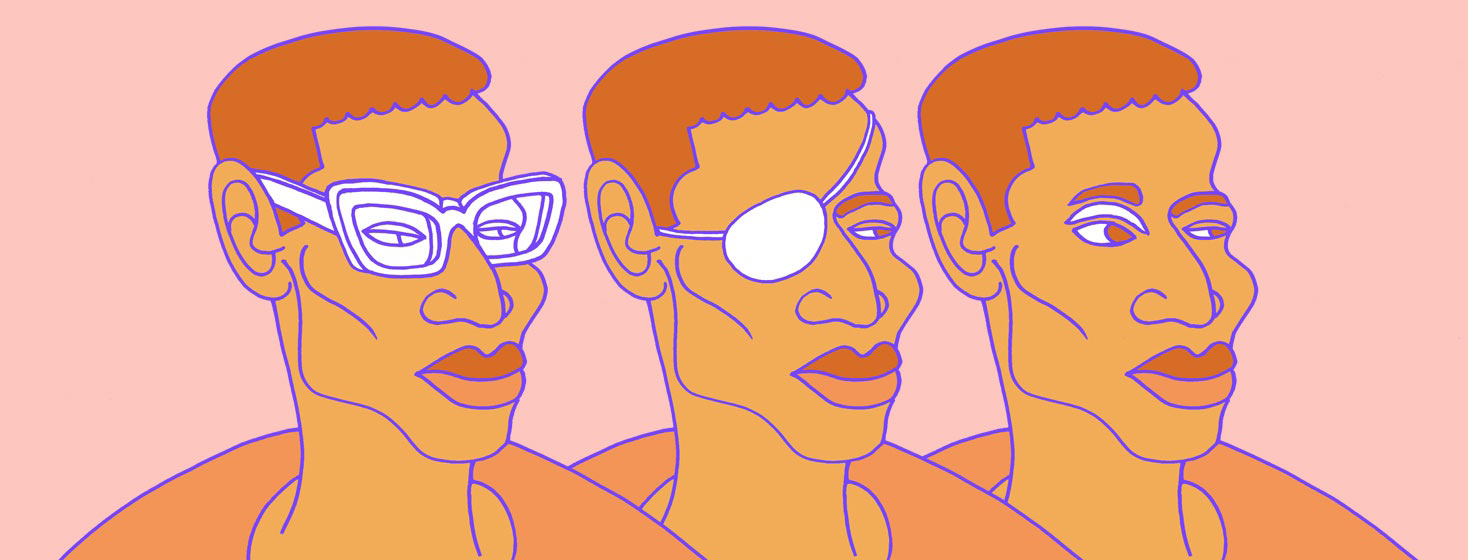Maintaining Eye Health With Myasthenia Gravis
Reviewed by: HU Medical Review Board | Last reviewed: April 2024 | Last updated: April 2024
Myasthenia gravis (MG) is a chronic condition that often causes muscle weakness. It happens when there is an interruption in the communication between nerves and muscles. Symptoms tend to worsen after activity but improve with rest. MG can occur at any age.1
MG causes different symptoms, depending on which muscles are affected. Some symptoms include difficulty swallowing or speaking and shortness of breath. Some people may also experience muscle weakness in their:1
- Arms
- Legs
- Neck
- Hands
- Fingers
MG can also affect the muscles that control the eyes and eyelid movement. About 90 percent of people with MG experience eye symptoms. Vision problems are often the first symptom people with MG have.2,3
MG that mainly impacts the muscles that control the eyes is called ocular MG. We do not currently know of a cure for MG or ocular MG. Some treatments may reduce symptoms or prevent progression.2,3
Featured Forum
View all responsesHow does MG affect eye health?
Eye and eyelid muscles are more vulnerable to MG. They contract more often than other muscles. This makes them more likely to get tired. Eye muscles have fewer acetylcholine receptors. These receptors receive signals from nerve cells and tell a muscle to contract. When you have MG, your immune system targets your acetylcholine receptors.4
Drugs given for MG can also impact eye health. MG is often treated with steroids. But steroids can cause side effects. For example, steroids can cause cataracts or increased pressure in the eye (glaucoma). If left untreated, cataracts and glaucoma can cause blindness.5
Other factors increase your risk of eye problems. Talk to your doctor if you are concerned about your risk. They can suggest ways to lower your risk. Potential risk factors include:6
- Older age
- Obesity
- Family history of eye disease
- Diabetes
- High blood pressure
- Being African American, Hispanic, or Native American
What are symptoms of eye problems?
When MG impacts the eye muscles, it can cause several symptoms. These include:3,4,7
- Drooping eyelids (ptosis)
- Double vision (diplopia)
- Dry eyes
- Trouble focusing
Symptoms often change from one day to the next. They tend to be worse at the end of the day. This may happen because of prolonged eye use throughout the day.4,7
This or That
Have you experienced these symptoms recently?
How is ocular MG treated?
Medicines can control symptoms and prevent progression of ocular MG. Different drugs work better for different people. And some muscles respond better to treatments than others.8
Many people can control eye symptoms with Mestinon® (pyridostigmine). This drug improves the communication between nerves and muscles. Your doctor may also suggest corticosteroids, such as prednisone. These drugs can suppress your immune system. Starting oral corticosteroids early can resolve eye symptoms or prevent worsening.2,8
Your doctor may slowly reduce your dose of steroids after symptoms resolve. If symptoms return, your doctor may suggest other drugs that reduce immune system activity. These include Prograf® (tacrolimus) and Imuran® (azathioprine). If your symptoms persist, your doctor may suggest you try:8
- IV medicines
- Supportive devices
- Surgery
Tips for taking care of your eyes
If you have MG, regular dilated eye exams are the best way to maintain eye health. These exams are especially important if you are taking a steroid that can cause glaucoma or cataracts. Catching glaucoma or cataracts early can prevent blindness. If you are on steroids and notice a difference in your vision, contact your eye doctor.5,7
There are many things you can do to care for your eyes and manage the symptoms of MG. These include:4,6,7,9
- Taking regular breaks during the day to close and rest your eyes
- Asking your eye doctor about wearing prisms in your eyeglass lenses to prevent double vision
- Wearing sunglasses or dark glasses if your eyes are sensitive to light
- Using eyelid tape to keep your eyes open and help with drooping
- Adding devices to your glasses, like eye crutches or Lundie loops
- Wearing an eye patch to prevent double vision and alternating the patch between eyes
Making healthy choices can help you maintain your eye health. Regular exercise and a balanced diet can reduce your risk of eye problems. They also reduce the risk of diabetes or high blood pressure, both of which can affect your eyes. Even smoking can impact your eyes, by increasing your risk of cataracts.6
If you are concerned about your eye health, be careful while driving. Double vision or drooping eyes can make it difficult or dangerous to drive. Other MG symptoms like weak neck muscles can also impair your driving.7


Join the conversation